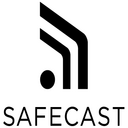29C3 - Version 1.9
| Referenten | |
|---|---|
|
|
sean bonner |
| Programm | |
|---|---|
| Tag | Day 2 - 2012-12-28 |
| Raum | Saal 1 |
| Beginn | 21:45 |
| Dauer | 01:00 |
| Info | |
| ID | 5140 |
| Veranstaltungstyp | Vortrag |
| Sprache der Veranstaltung | englisch |
| Feedback | |
|---|---|
|
Haben Sie diese Veranstaltung besucht? Feedback abgeben |
Safecast: DIY and citizen-sensing of radiation
Empowering citizen in the wake of Fukushima triple-meltdown disaster

The triple meltdown of the Fukushima Dai-Ichi nuclear power plant in March last year and the release of radioactive material that has ensued have left a good part of Northern Japan contaminated with unknown amount of radioactivity. An outstanding lack of transparency from both the government and the power utility then resulted in a near total lack of information concerning the levels of radiation in the, yet unknown, contaminated areas. As a response, concerned citizen have started to take upon themselves this challenging task. However it quickly became clear that handheld measurements wouldn't scale up to the full magnitude of the area to cover. New means of measuring radiation accurately, quickly and cheaply were needed.
We present the design of an affordable mobile radiation sensor system for independent citizen monitoring and cartography of radioactive contamination. Historically radiation measurements has had a high entry barrier for technical, financial, and political reasons. We show how the tremendous advances in information technology have been a game changer in this field. Notably, we leverage the open-source software and hardware paradigm to dramatically accelerate the development and deployment time of the system. Our design methodology allowed to prototype and deploy the system in one month following the Fukushima disaster. Our sensors have been since driven by volunteers, covering most of North-East Japan with a fine spatial resolution.
Safecast is a volunteer based organization created in the early days following the triple meltdown accident at the Fukushima nuclear power plant in 2012. Its goal is to give independent information concerning the radiation levels, first in Japan, but then globally.
Early on, we realized that in most places radiation measurements are simply not done, so we decided to collect this data ourselves. Volunteers from Tokyo Hackerspace used tools from the DIY revolution (Arduino, cheap PCB fab, laser cutters, ...) to create a versatile mobile radiation measurement device called a bento-Geiger counter, nicknamed bGeigie , a lunchbox sized contraption that is fixed on a car and collect geo-tagged radiation data as the car moves.
Using this system (of which we have around 50 units by now), we were able to cover most of Japan, but also other places world wide, such as Hong Kong, Seoul, California, etc. The devices are driven around by volunteers in the Fukushima area during their daily activities.
This lecture will present first how this organization was born from a discussion on social networks, and how these networks allowed talented people to come on-board quickly. Then the bGeigie system will be presented to show how it could be replicated at home. Finally the result of our survey of radiation in Japan and the maps resulting will be shown.
